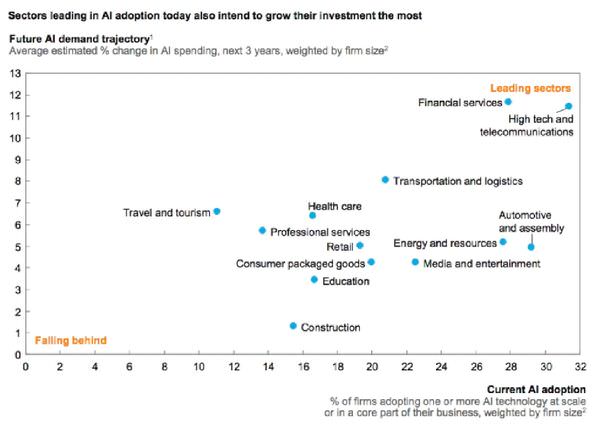India is one of the most dynamic hotbeds for startups in the world today. Over the past few years, India has been on the cusp of a digital revolution with the rise of data science startups. The two most important goals of a data science startup are:
- To continuously improve products that are widely used by customers.
- To improve business and organizational decision-making processes.

A study report by Analytics India Magazine states that, currently, there are more than 5,000 startups in India dedicated to helping clients in various sectors by leveraging the power of tools like data analytics and AI.
It further states that the Indian company holds a 7% stake in the global analytics market. As impressive as these numbers are, not everything is smooth sailing. Like every startup, data science startups also have different pitfalls and challenges. And not all startups make it past the end of the tunnel.
So here’s a list of do’s and don’ts for a data science startup!
Do come up with innovative ideas.
Finding and developing the right product that will help your customers is the catch. Since you’re new to the analytics game, be patient learning new ways to leverage the tools and data at your disposal to generate innovative solutions.
Try to find out your area of expertise and analyze the market carefully to identify the weaknesses of your potential customers. As you move in your field of knowledge, there is a good chance that you will come up with a pilot solution that has a high degree of accuracy. Other than that, there’s so much that really helps data science certification to help startup founders master the field.
Always strive to develop products that have a clear technical application. It’s tough, and you’ll have to spend a lot of resources and time on it, but in the end, it’ll be worth the effort.
Remember, you want solutions to existing problems because, going forward, we’re looking forward to use case-specific and industry-specific data science startups. Divyesh Patel, Co-Founder of Turing Analytics, say:
“They [AI startup founders] have to find a problem where the market demands a solution and then apply data science to try to solve it.”
Don’t stuck in a “cold start” loop.
Being a beginner in an ever-changing ecosystem can be challenging. While it’s true that AI infrastructure will continue to be largely dominated by giants like Google and Microsoft, that doesn’t mean you should give up on finding better solutions.
When you build the first prototype of your product, it has to overcome the “cold start” problem, that is, it has to be good enough to break the ice and start the process of data accumulation and data-driven improvement.
However, don’t get caught in this circle. Try to find an AI application that can help combat a given problem ten times better than existing solutions. For example, customer service at a bank could be significantly improved by incorporating bots into the system which would connect to clients’ personal banking data and help create added value by tracking their saving and spending habits.
Do strive to be ‘Pitch Perfect.’
Funding is the lifeline of every startup, and to receive a steady supply of funding, you need to be able to come up with a reliable and attractive offer. This will help you convince angel investors and venture capitalists (VCs) to see that your product can provide value to the organization. And this can’t be just theory.

You should use sample data to prove your case with the prototype you have designed. The better you convey your idea to potential investors, the higher your chances of receiving funding for your startup. However, before choosing to join an angel or VC community, do a little digging first:
- Are your organization’s core values aligned with investor values?
- Will the bond affect your freedom of decision-making?
- What is your potential investor’s record?
Don’t limit yourself to small markets or sites in areas already occupied by AI personalities.
Thanks to large technology organizations, today, Ai infrastructure is rapidly commoditized. So you need to retrace your steps and dedicate your resources to hunting for ‘business-scale’ opportunities that will allow you to thrive.
For example, education and healthcare are two sectors that share a much broader landscape of analytics and stand out in the clamor of tools like Machine Learning as a Service (MLaaS).
In addition, try to shift your focus to B2B applications because the amount of data available makes it a melting pot of opportunities. Always be on the lookout for industries that are early adopters and find out how your product can revolutionize the industry.
Do invest your time and resources to build a great analytics team.
Your team is what represents your organization and strengthens it. They are the brains behind the product. So you need a strong, well-coordinated squad that fully understands the implications of AI and data analytics.
Your team should be a talent pool with data scientists, data analysts and data engineers working in close cohesion with one another. Emphasizing the importance of a tight-knit team, Rishabh Kaul, one of the Founders of Belong say:
“Call us crazy, but we believe that any two people can connect and build something together – be it a company, a social movement or even a revolution – always requiring them to connect on something deeper and more enduring than ‘skills’. ”
India has no shortage of talented and educated individuals, you just have to know where to look!
In the startup game, it’s very important that you always keep your approach fresh and original. As a startup, you can’t expect that people will easily open up to your idea, but you have to be persistent in selling what you build.
Keep these few tips in mind and have faith in what you are doing!








